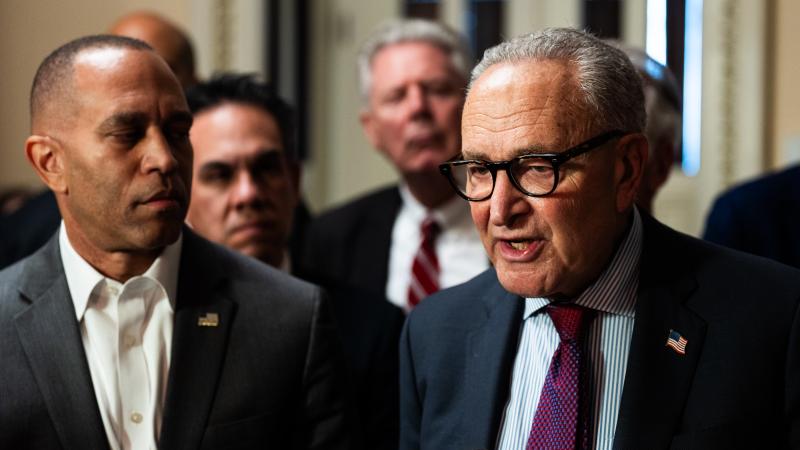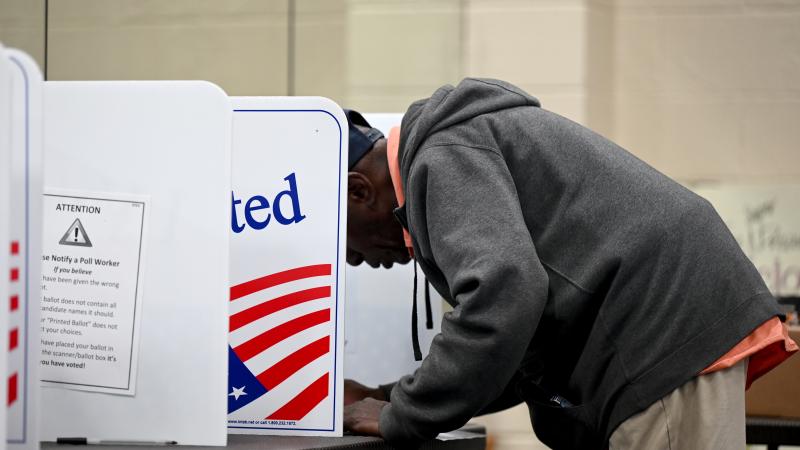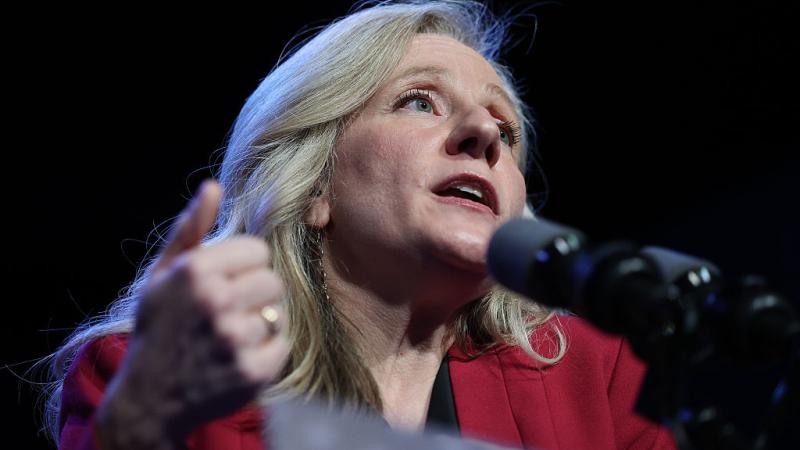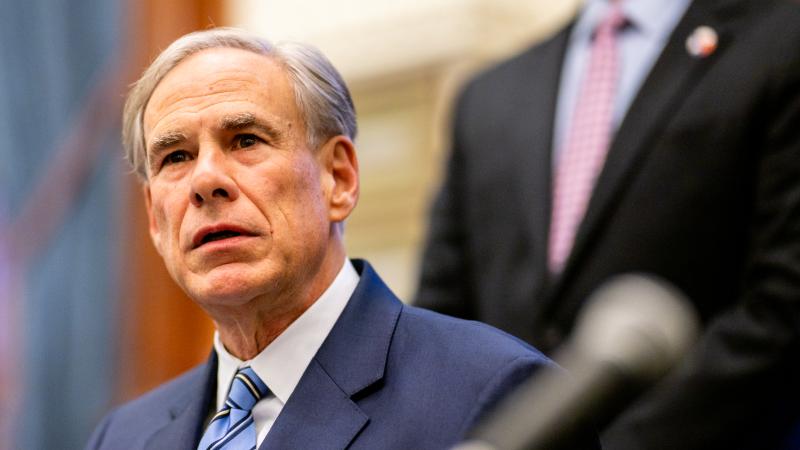House lawmaker moves to oust judge in deportation case with move that skips impeachment
Rep. Andy Biggs invoked the “good behavior” clause of the Constitution to argue Congress has the authority to remove judges short of impeachment.
An Arizona congressman introduced legislation Monday to remove the federal judge who has blocked President Donald Trump's efforts to deport Venezuelan gang members, offering a novel path that avoids the impeachment process and the need for two-thirds support in the U.S. Senate.
Rep. Andy Biggs, R-Ariz., filed a resolution that would remove U.S. District Judge James Boasberg for “failing to maintain the standard of good behavior required of judges" under Article III, Section 1 of the Constitution.
You can read the resolution below:
“Most Americans believe that there is lifetime tenure for a federal judge. That unless impeached, a federal judge can serve until death," Biggs told Just the News. "But lifetime tenure is not guaranteed, nor mentioned, in the Constitution. Article III, Section 1 permits a federal judge to serve only ‘during good behavior.’”
Biggs argued the clause gives Congress the authority to remove judges that it believes have failed to uphold that standard short of using impeachment.
Boasberg, who serves on the federal bench in Washington D.C., blocked the Trump administration from using the Alien Enemies Act of 1798 to deport illegal immigrants, who were alleged members of the Venezuelan gang Tren de Aragua. He also ordered government planes en route to El Salvador and carrying the alleged gang members to return to the United States.
Boasberg is only one of several federal judges that have blocked administration policy, ranging from firings of bureaucrats, shuttering of agencies, and attempts to abolish birthright citizenship.
Biggs said he believes many of these judges have overstepped their authority and reached outside their narrow judicial districts, and that Congress should take the reigns, invoking the Constitutional provision, to fire ones that make politically biased decisions that fall short of grounds for impeachment.
“[W]hat about a judge who has a conflict of interest and refuses to recuse himself from the case with which he has a conflict? Or, what if he has repeatedly supported publicly a political figure and vigorously denounced, not just on policy grounds, but on more virulent grounds, his political opponent?" Biggs asked.
"Then a case involving the political adversary comes before him, and he insists on hearing the matter instead of recusing?” Biggs asked. "You see, impeachment doesn’t work in these and other similar instances. The jurisdiction limitation against nationwide injunctions also doesn’t prevent an unjust, biased determination," he added.
“Maybe, however, firing such a judge could be the answer. It would certainly be specific deterrence that would prevent that type of misconduct from such a judge. And it would provide general deterrence in that all other federal judges would think more about applying the law to the case rather than attempting to twist the law so that the judge can attack a political adversary,” the congressman said.
Biggs’ resolution targeting Boasberg argues that the judge’s injunction blocking deportations of alleged Venezuelan gang members infringed upon the president’s “constitutional prerogatives” and therefore is an abuse of power.
“The Constitution grants the President broad and expansive powers over the conduct of foreign policy and to ensure national security against foreign threats,” the resolution reads. “As such, outside questions of the constitutionality of a provision or action, the Constitution places foreign policy decisions by the President and Congress beyond the scope of review by the courts along with actions taken pursuant to those decisions.”
Where Boasberg overstepped, the resolution argues, is when he “knowingly interfered with the President’s execution of foreign policy by ordering the return of members of a designated foreign terrorist organization to the United States.”
By issuing this order, Biggs contends, “Boasberg knowingly extended beyond the bounds of power of his office and unjustly interfered in the execution of foreign policy and national security for partisan purposes of halting the implementation of the President’s foreign policy and for political gain.”
Biggs’ proposal to invoke a constitutional provision follows other Republican proposals for broader judicial reform as well as calls for the use of impeachment powers.
Rep. Jim Jordan, R-Ohio, who leads the House Judiciary Committee previously told Just the News he plans to address reforms to the judicial system in three ways: passing legislation to limit nationwide injunctions by individual federal judges; wielding Congress’s appropriations power to curtail judicial activism; and conducting hearings on judicial conduct.
On Monday, Senate Judiciary Committee Chairman Chuck Grassley introduced legislation to curtail federal judges' authority to the litigants in the case and in their geographic jurisdiction, seeking to limit a single judge from imposing restraining orders that impact an entire nation.
Other House Republicans have filed articles of impeachment against at least three of the judges blocking Trump orders, including Boasberg.
But Biggs argued his method may let Republicans bypass the required 60 votes in the Senate to pass legislation or the two-thirds majority for impeachment.
“The Senate also confirms judicial nominations by a simple majority vote of 51. The finding that a judge has violated terms of ‘good behavior’ should also be affirmed by a simple majority of votes in the Senate and House,” Biggs told Just the News.
The new proposal would challenge the traditional interpretation of the “good behavior” clause. The long-held traditional view among legal scholars is that impeachment remains the sole method of removing a federal judge. However, that view has been challenged as recently as 2006 by some scholars who suggest the wording of the Constitution leaves the door open for removal without impeachment.
Biggs said that if his colleagues buy his arguments and agree that recent judicial behavior violates the “good behavior” provision, “Article III, Section 1 will allow us to collectively say, ‘You’re fired’ to those judges who have forfeited their tenure on the bench by abusing their power.”













